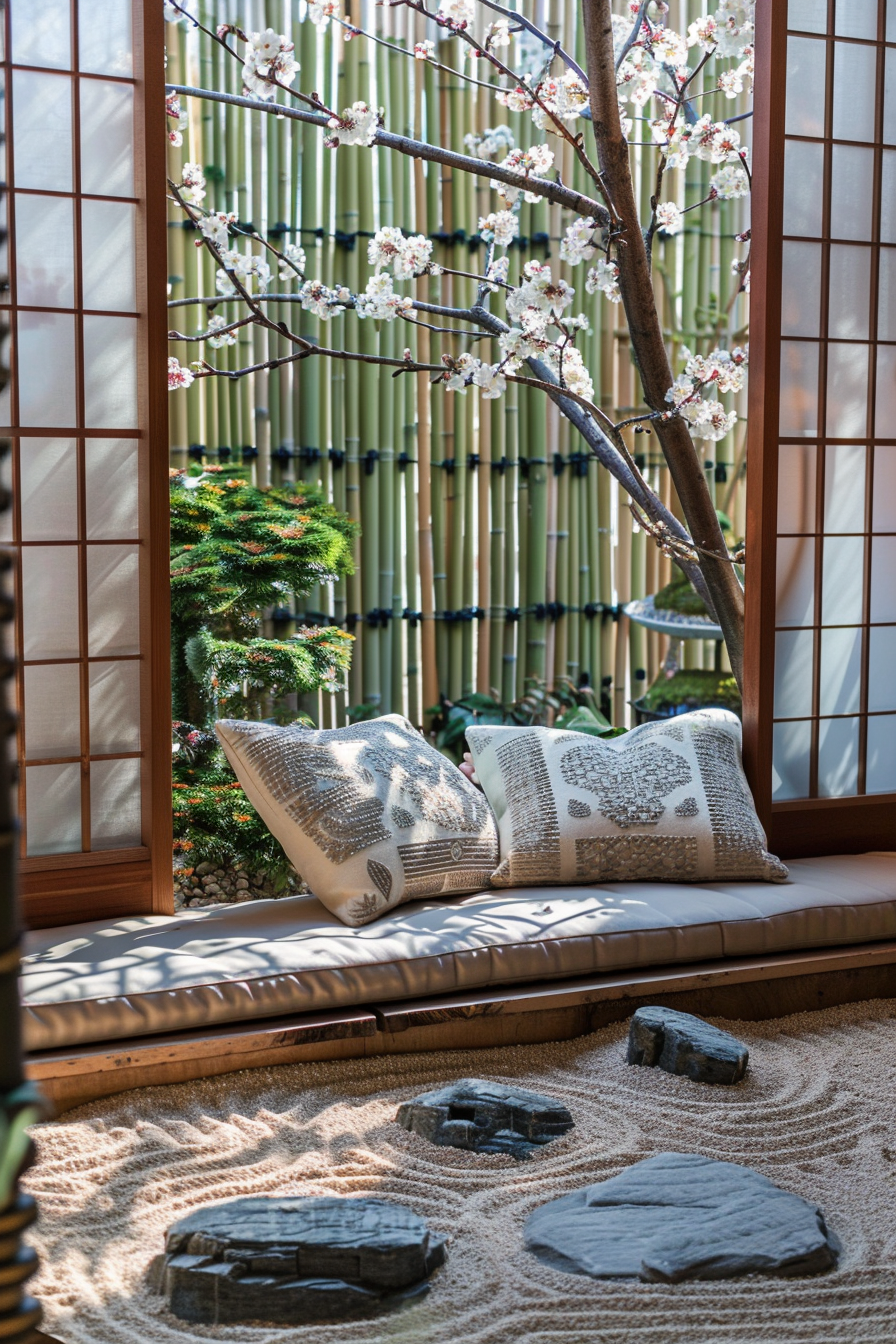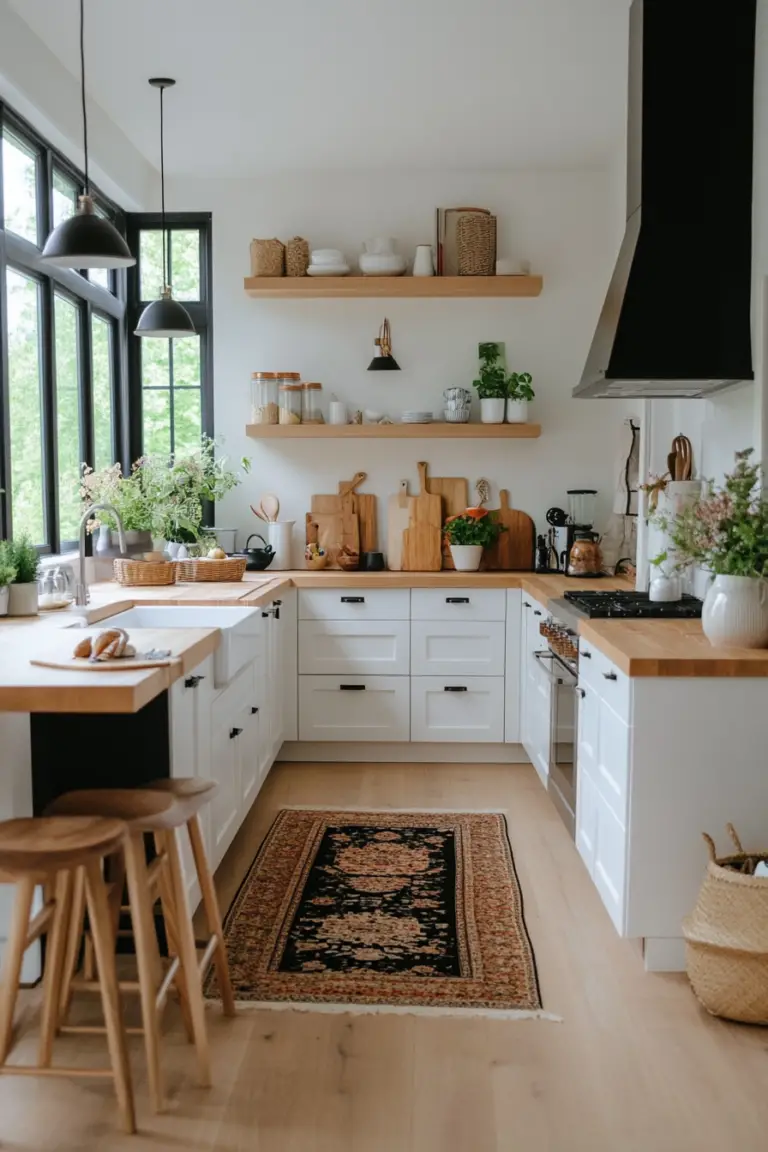Tips for Crafting a Zen Japanese-Style Reading Nook
Did you know that Japanese homes often feature a “tokonoma”—a small alcove dedicated to art and contemplation? (Who wouldn’t want a slice of that serenity at home?) Let’s dive into how you can transform a corner of your space into a peaceful Japanese-style reading nook that’s both stylish and soul-soothing!
Less Clutter, More Calm
In Japanese decor, minimalism isn’t just a style—it’s a way of life.
- Clear the Chaos: Time to bid farewell to unnecessary items. A tidy space equals a tidy mind!
- Simple Seating: Opt for floor cushions or a low futon. It’s cozy and (bonus!) space-saving.
Nature Knows Best
Bringing the outdoors in is key to achieving that tranquil vibe.
- Natural Materials Are a Must: Think bamboo shelves or wooden floor mats. They add warmth and texture.
- Greenery Galore: A petite bonsai or even a humble fern can make your space feel alive.
Let There Be (Soft) Light
The right lighting can turn your nook from drab to fab.
- Shoji Screens and Lamps: These diffuse light beautifully, casting a gentle glow.
- Candlelight Magic: (Scented candles, anyone?) They add ambiance and a hint of romance.
Colors that Soothe the Soul
Stick to a palette that whispers, not shouts.
- Earthy Tones Rule: Soft browns, gentle greens, and creamy beiges set a calming scene.
- Pop in a Subtle Accent: A splash of muted red or indigo can add interest without overwhelming.
Make It Uniquely You
Personal touches turn a good nook into a great one.
- Show Off Your Faves: Display a beloved book or a treasured keepsake.
- Art with Heart: Hang a simple piece of artwork or a meaningful quote.
Budget-Friendly Hacks
No need to splurge to get the look!
- DIY Delights: Get crafty with homemade paper lanterns or fabric cushions.
- Thrift Store Finds: Unearth gems like ceramic vases or bamboo accessories without breaking the bank.
- Nature’s Decor: (And it’s free!) Use smooth stones or dried branches as decorative pieces.
Quick Wins to Get You Started
Ready to get started? Here are some easy steps:
- Swap Harsh Lights for Warm Ones: Instant cozy vibes!
- Lay Down a Tatami Mat: It sets the foundation for your nook.
- Add Comfy Textiles: Soft throws and cushions invite you to linger longer.
1. Embrace Minimalism
Japanese design emphasizes simplicity and minimalism. Opt for low, streamlined furniture, and keep the space uncluttered. Use a neutral color palette with natural materials like wood and bamboo to create a serene backdrop.
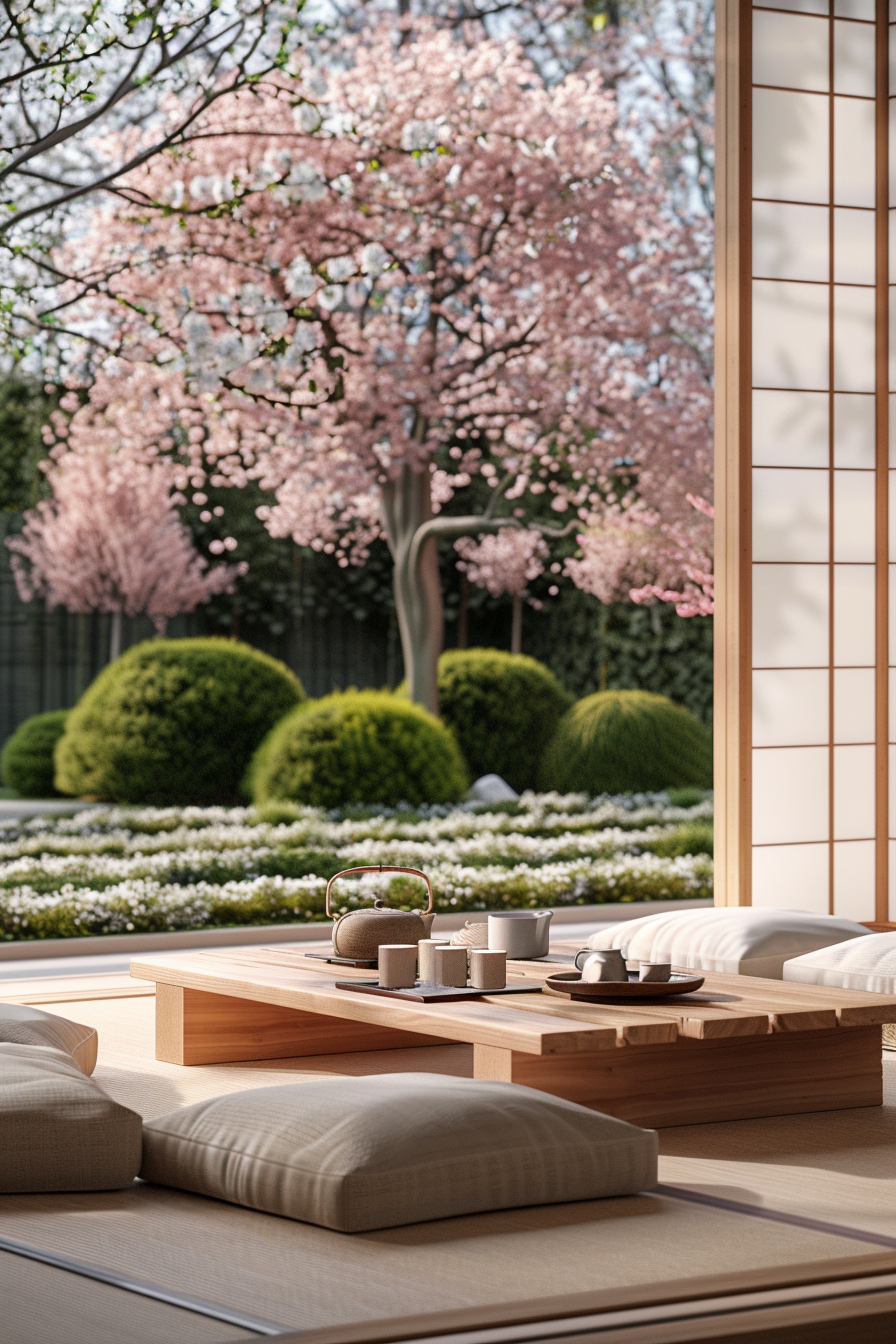
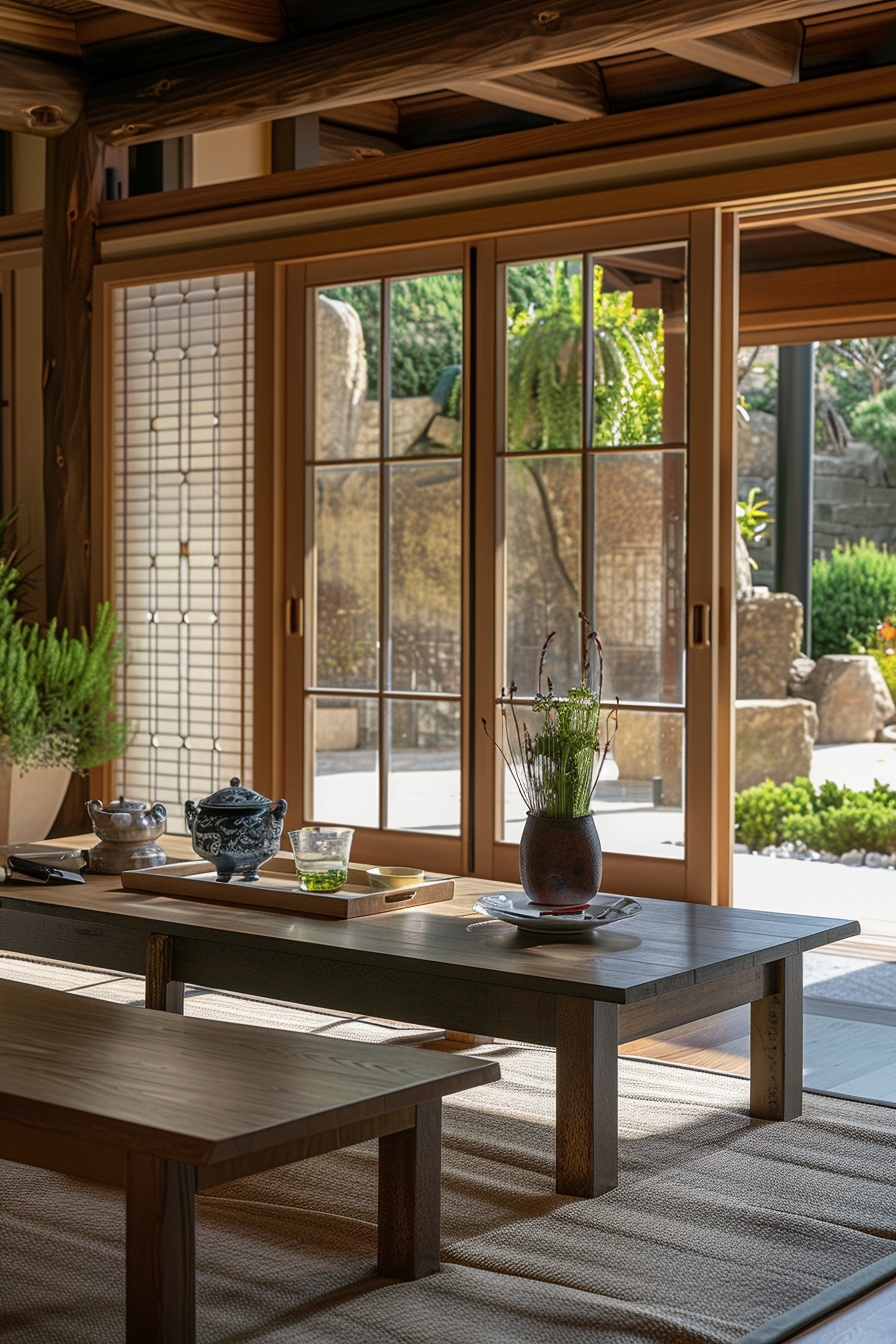
2. Tatami Mats and Zaisu Chairs
Integrate traditional tatami mats and zaisu chairs (legless chairs with back support) to ground your space. These elements provide comfort and maintain the low-profile aesthetic typical in Japanese interiors.
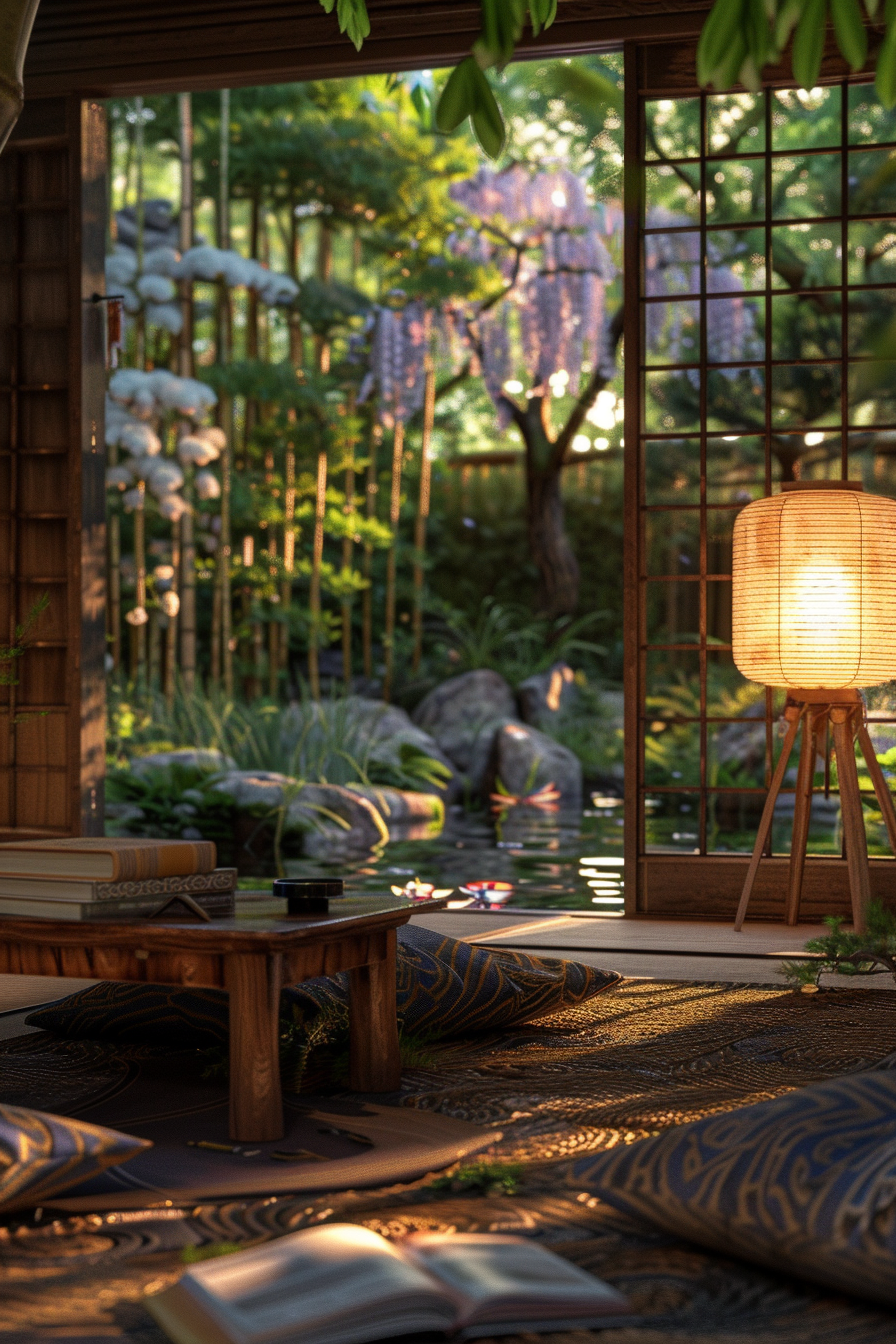
3. Sliding Shoji Screens
Shoji screens are quintessential in Japanese design. These sliding screens made of translucent paper and wooden frames allow for flexible space usage and diffuse natural light beautifully.
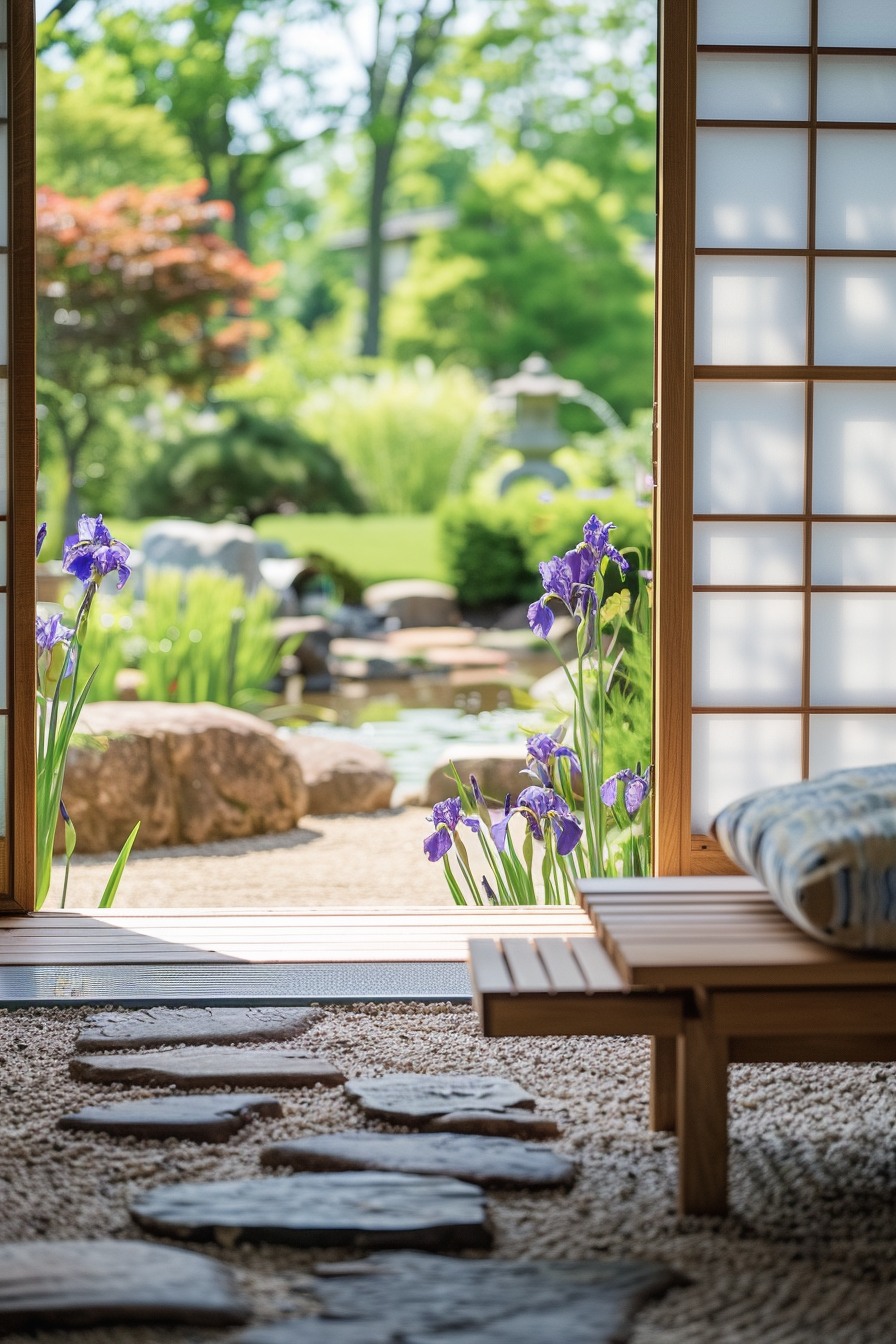
4. Incorporate Natural Light
Position your reading nook to take full advantage of natural light. Large windows or open sliding doors that look out onto a garden can flood the space with soft, ambient light.
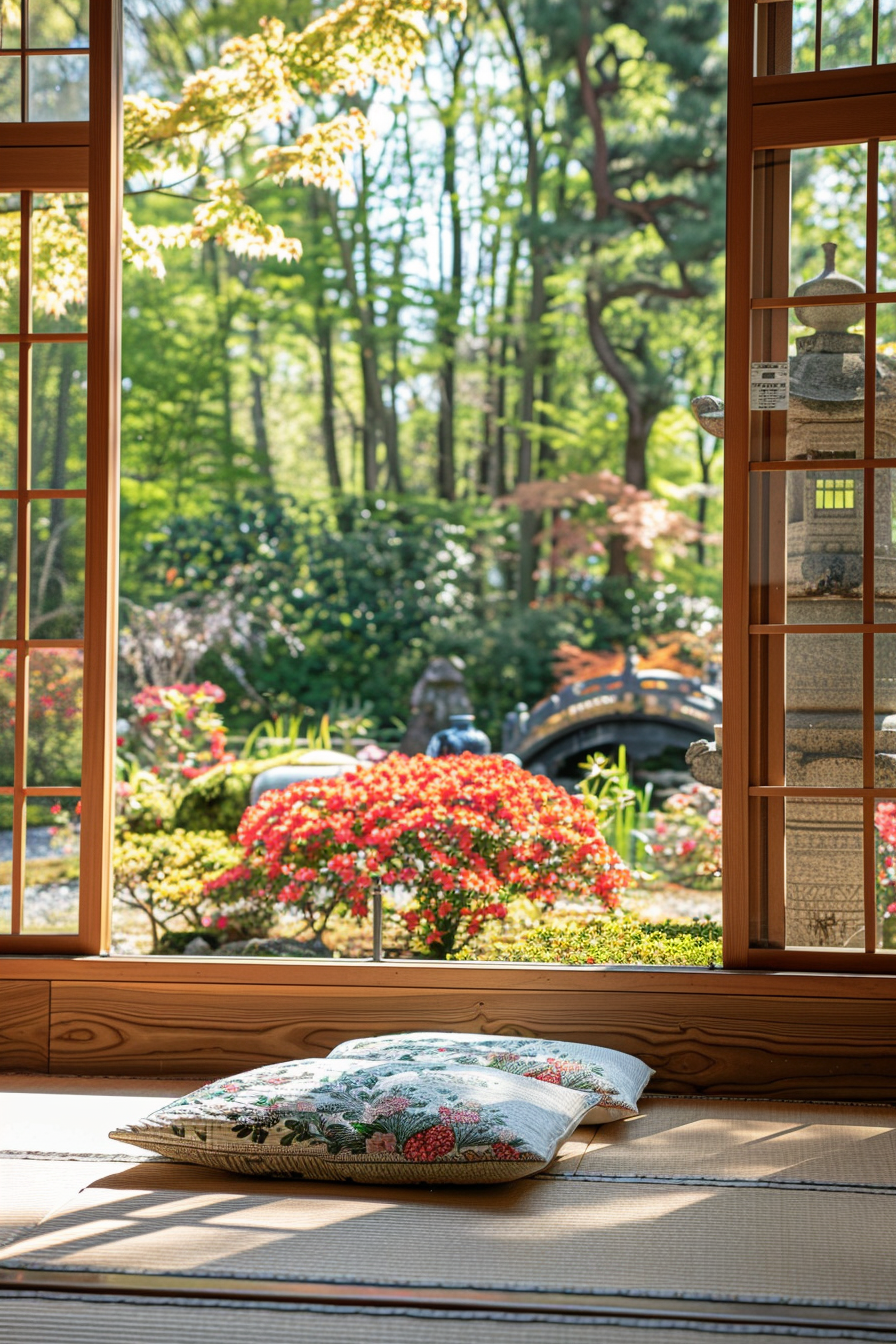
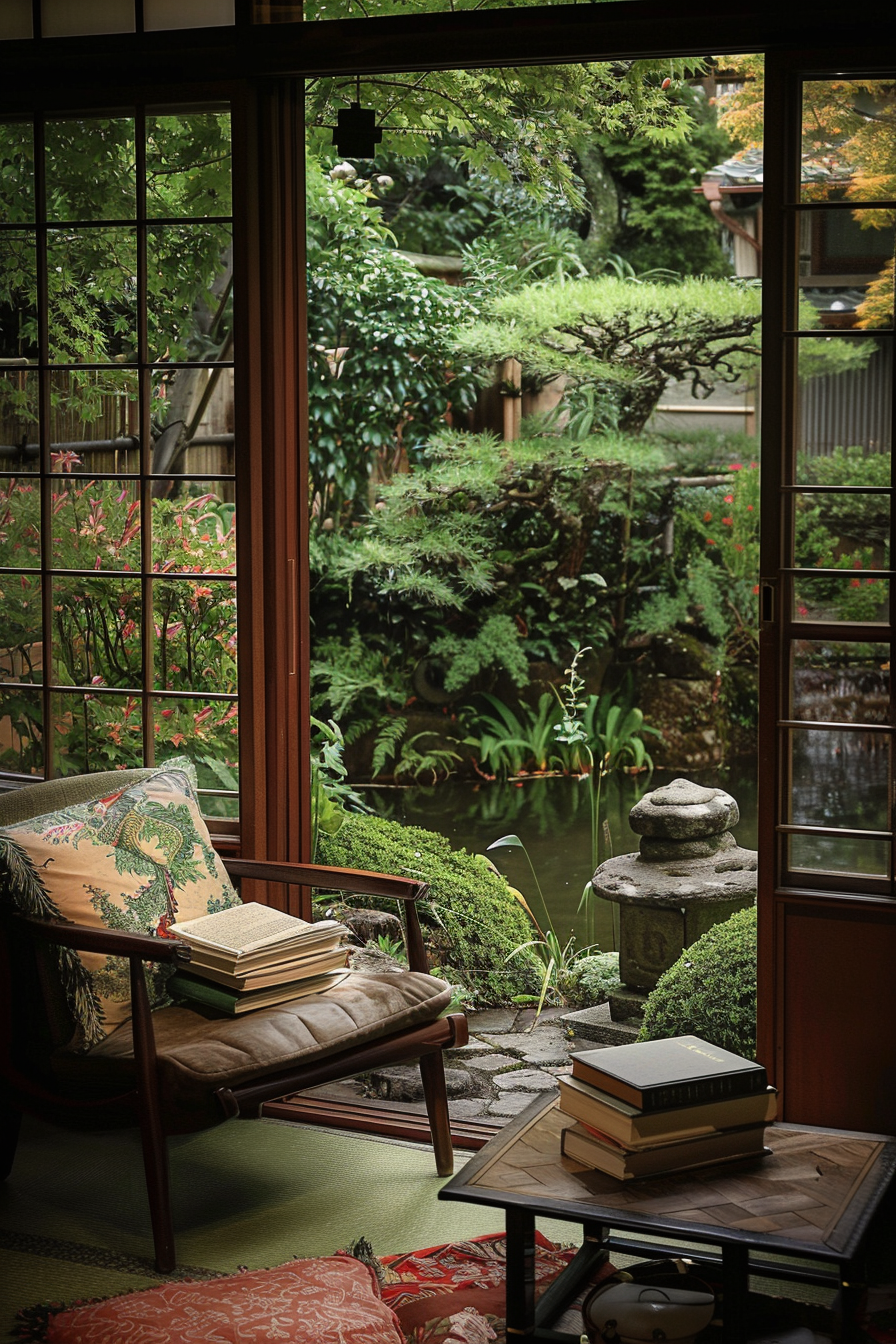
5. Add a Tokonoma Alcove
A tokonoma is a recessed space where special items like scrolls or ikebana (flower arrangements) are displayed. This can serve as a focal point and enhance the cultural authenticity of your reading nook.
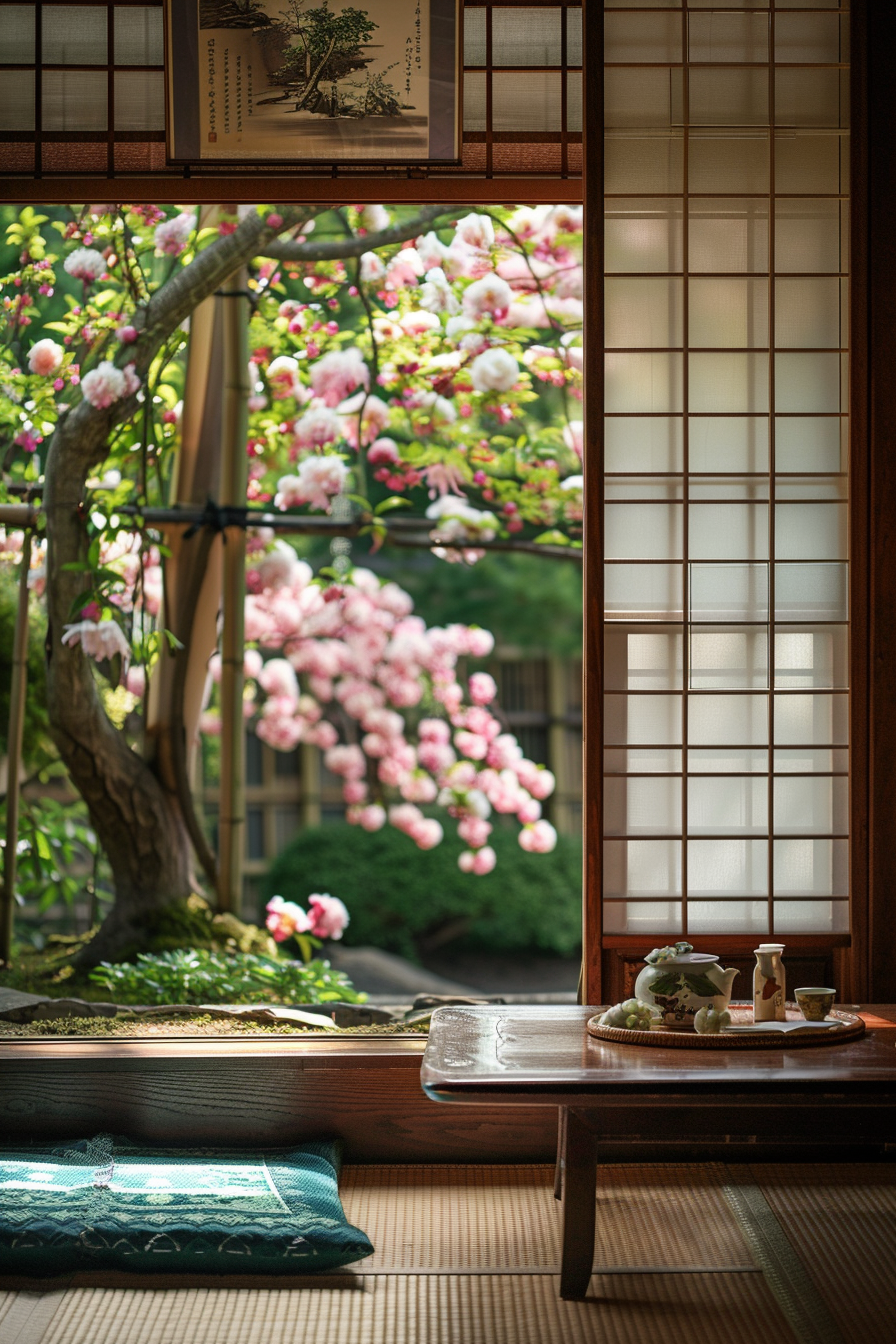
6. Use Natural Materials
Wood, stone, and paper are central to Japanese interiors. Choose furnishings and decor made from these materials to bring a sense of nature and calm into your reading nook.
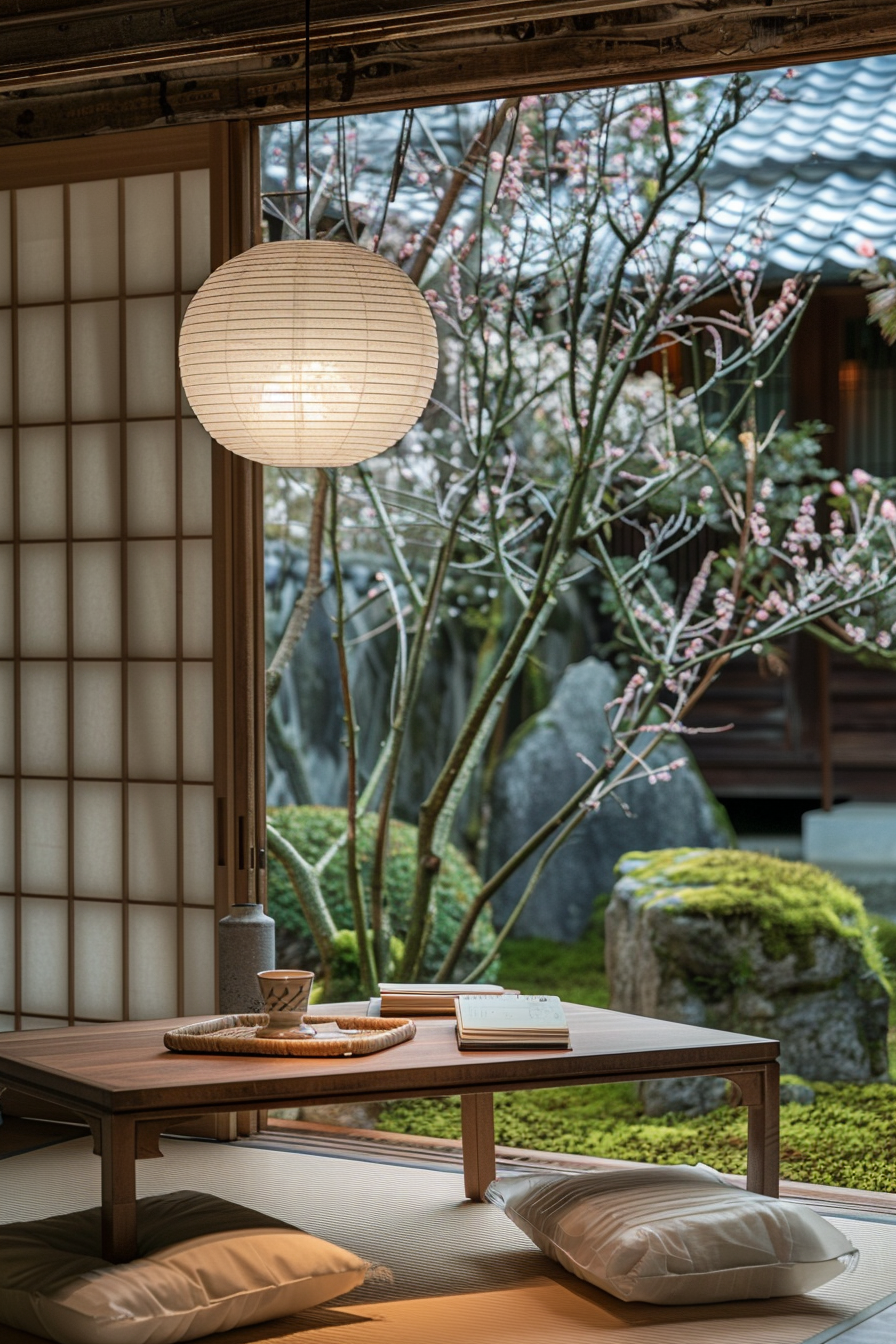
7. Soft and Muted Colors
Stick to a soft, muted color palette inspired by nature, such as shades of beige, soft greens, and gentle browns. This helps create a soothing environment conducive to reading and relaxation.
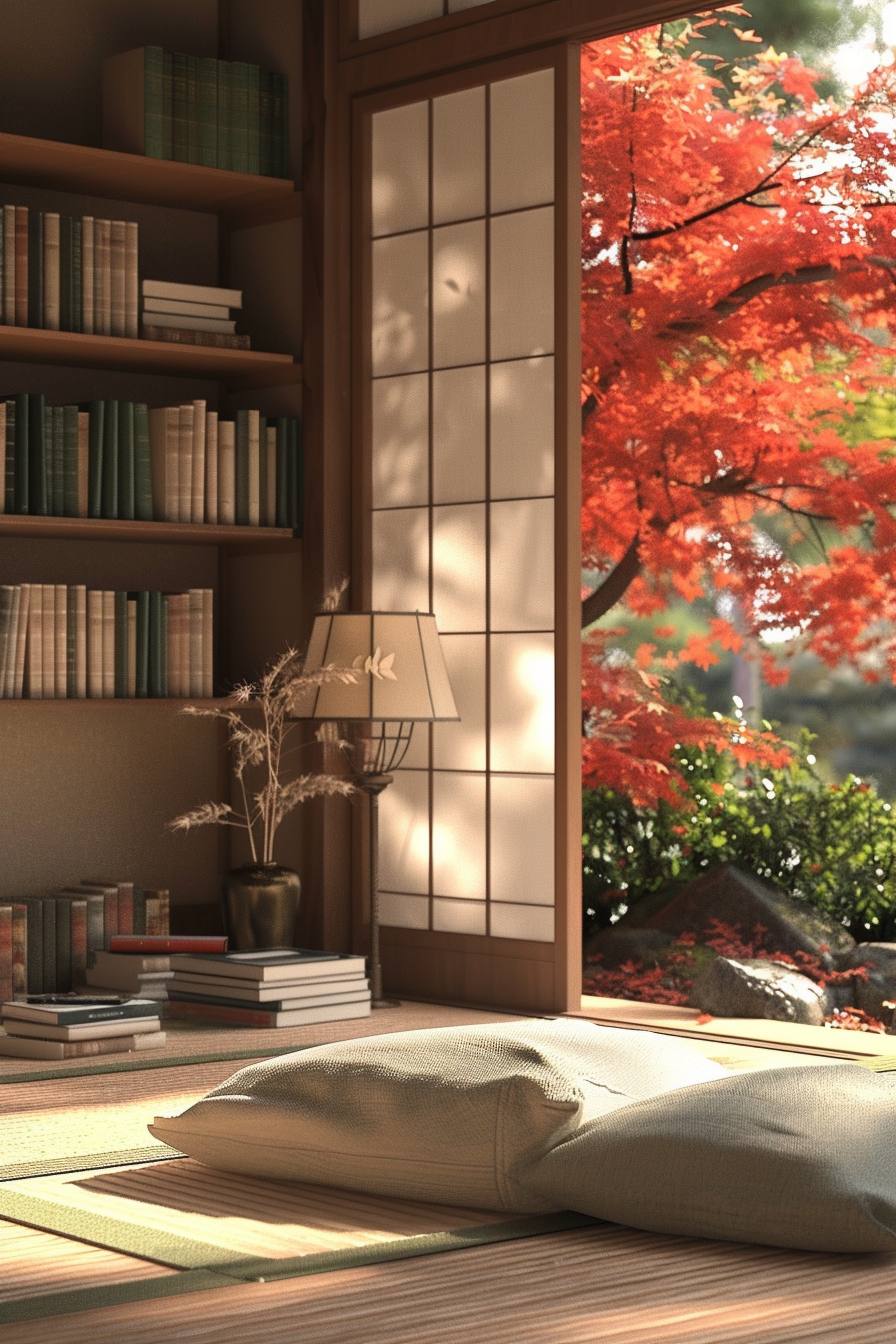
8. Introduce Water Elements
Incorporating a view of water, whether it’s a small pond, a fountain, or a stream in your garden, can enhance the tranquility of your space. The gentle sound of water adds a soothing background noise.
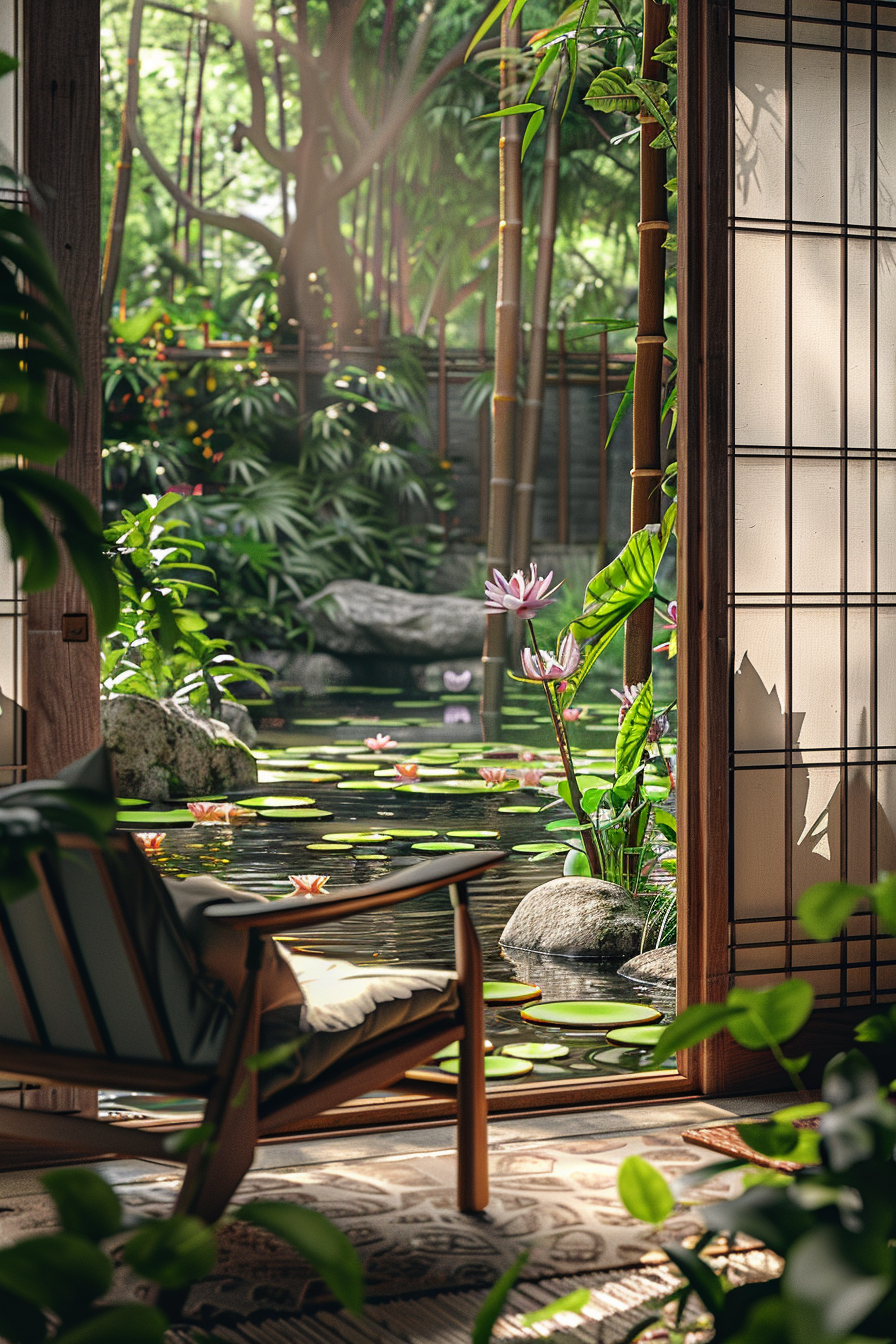
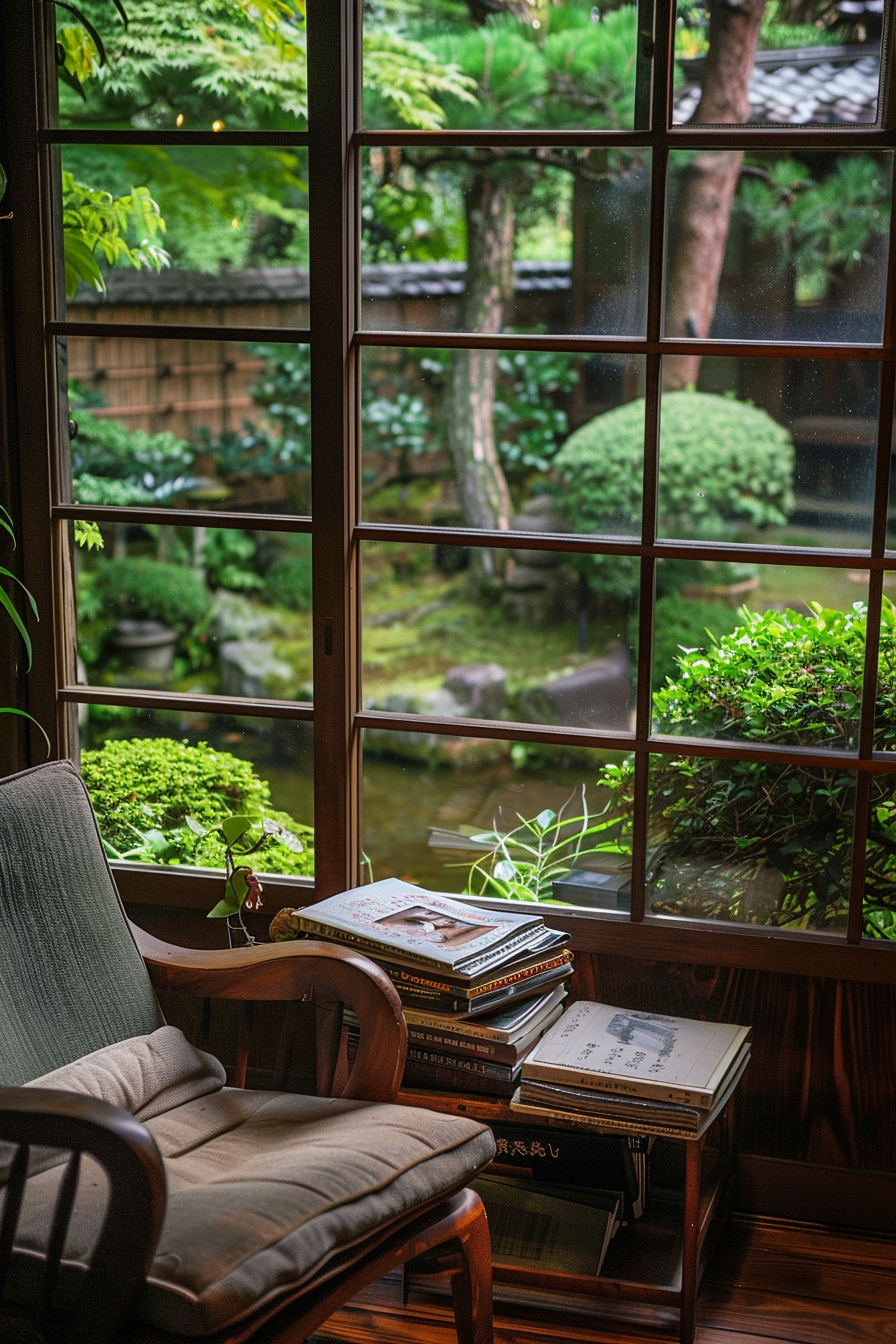
9. Integrate Greenery
Bringing plants into your reading nook, such as bonsai or potted ferns, can add a touch of nature and enhance the connection between indoor and outdoor spaces.
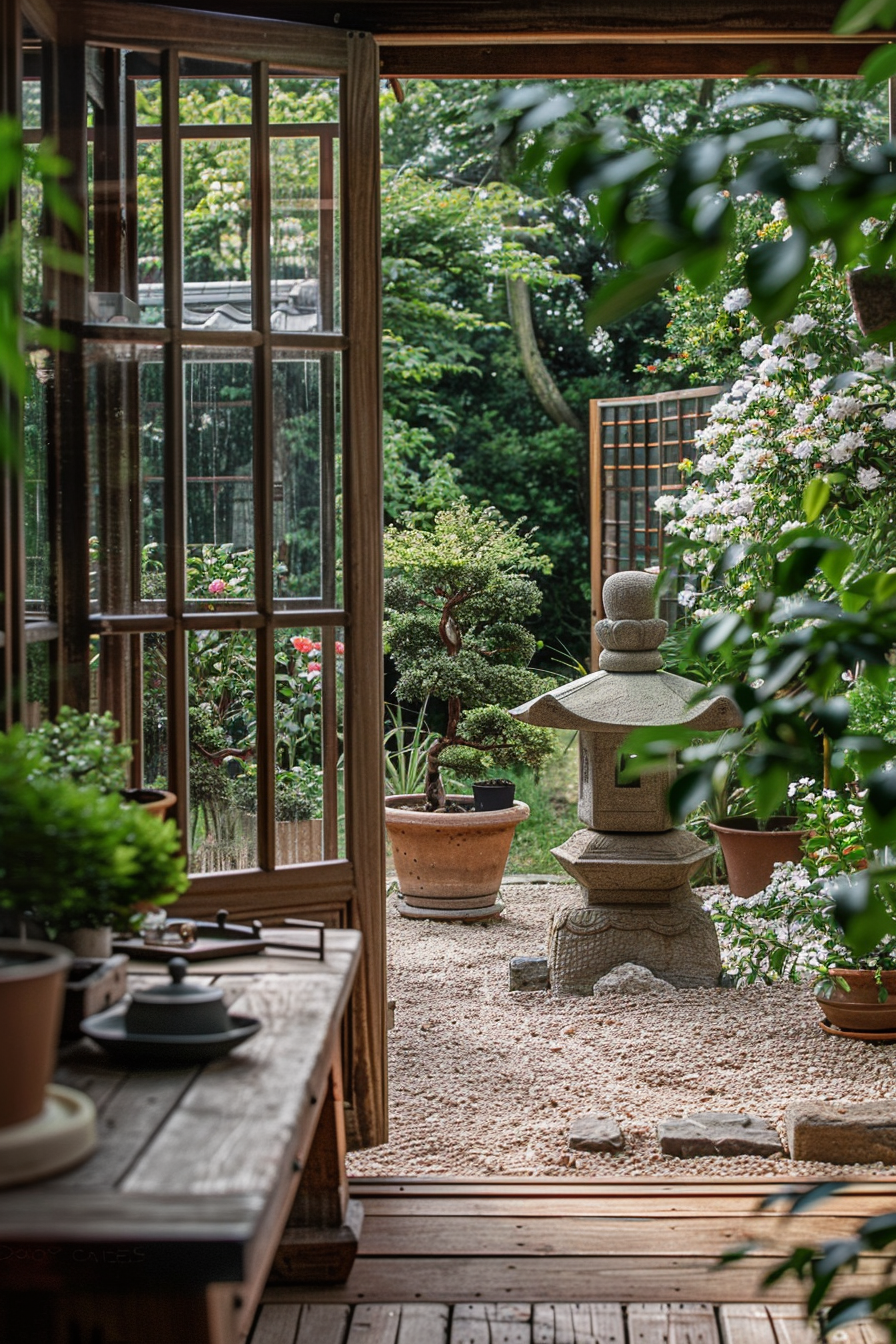
10. Add Comfortable Textiles
Soft, comfortable textiles like floor cushions, futons, and throws can make your reading nook more inviting. Opt for natural fabrics like cotton and linen to maintain the organic feel.
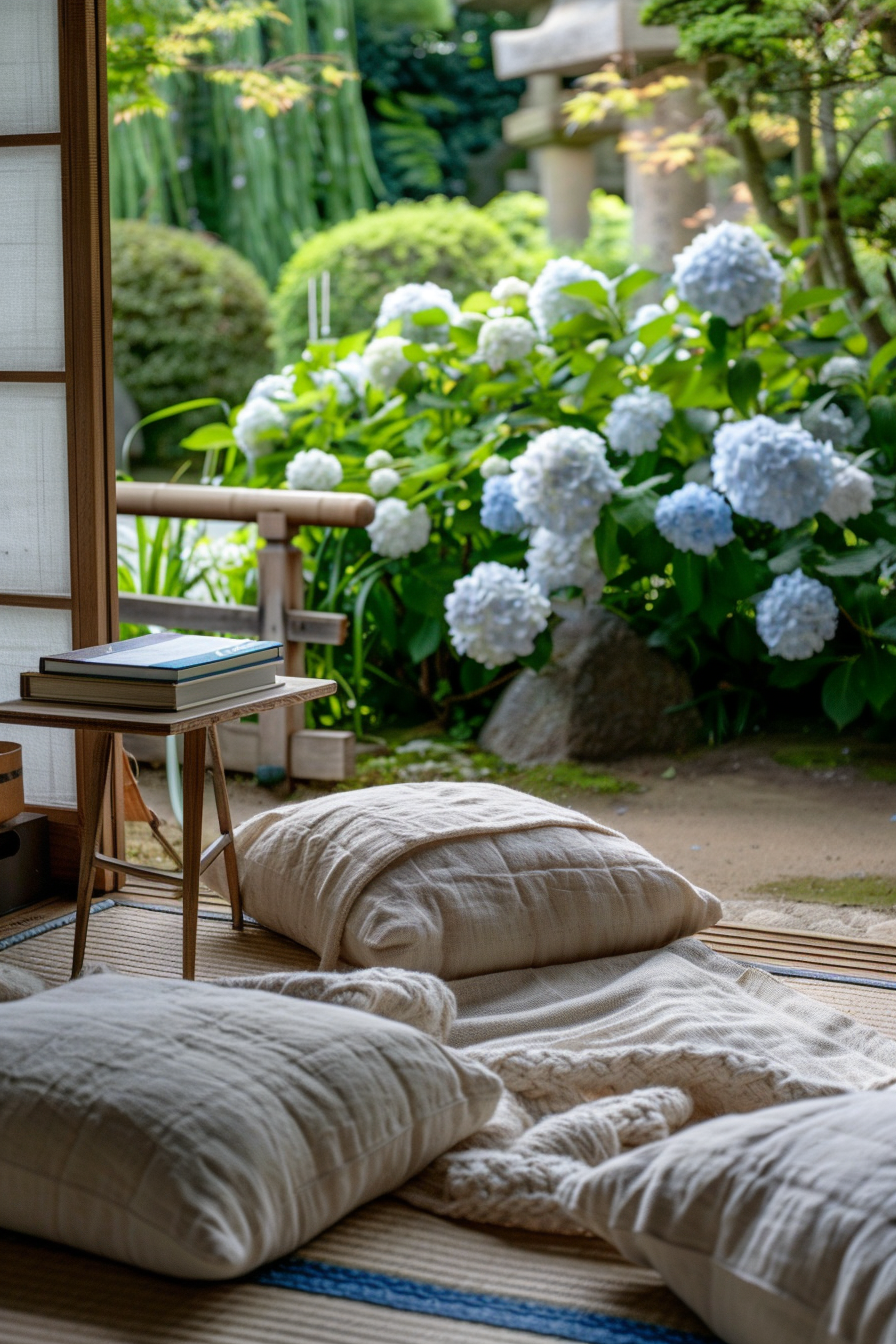
11. Incorporate Traditional Artwork
Enhance your nook with traditional Japanese artwork, such as hanging scrolls, calligraphy, or woodblock prints. These pieces add cultural depth and visual interest to the space.
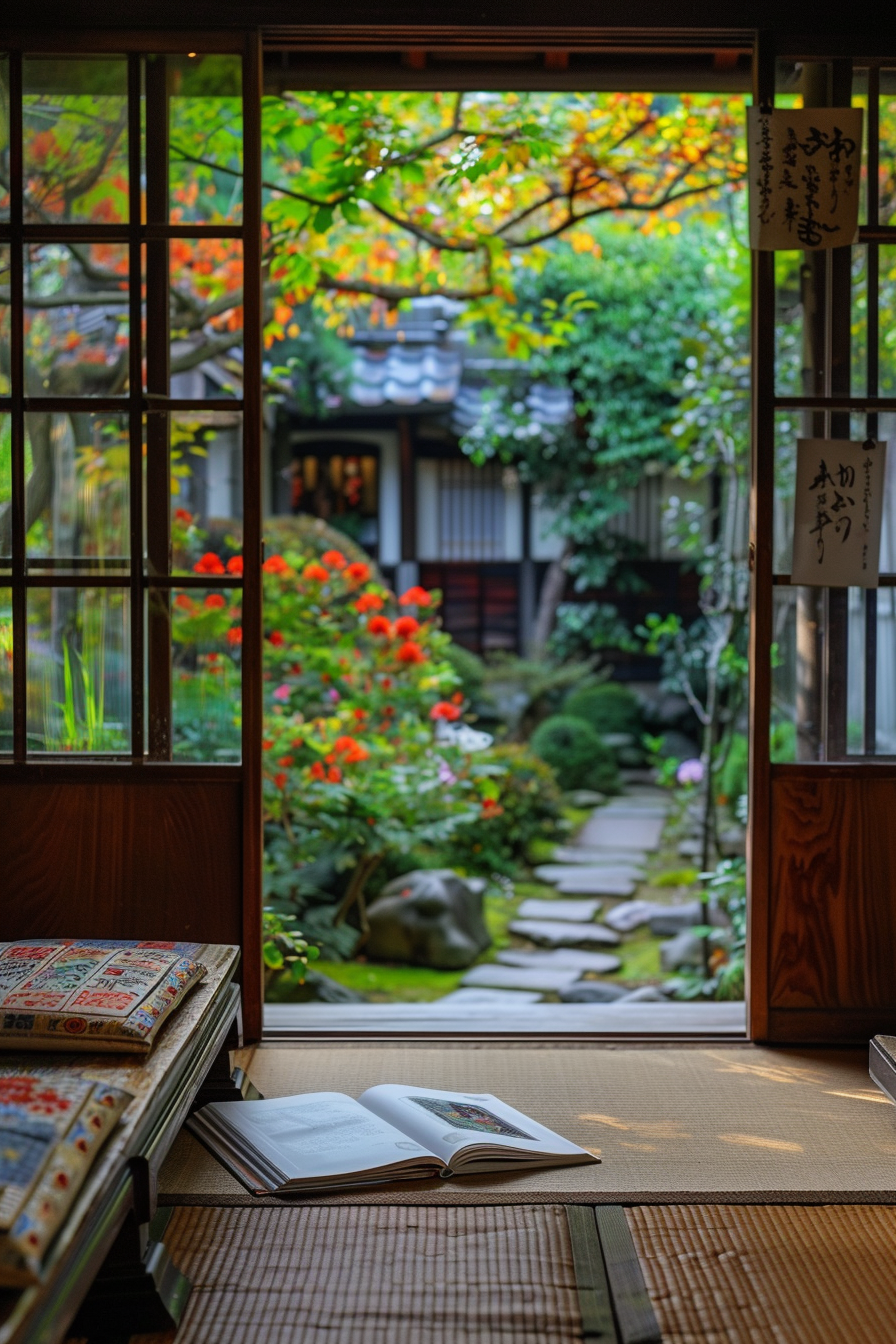
12. Utilize Layered Lighting
Layered lighting, such as a combination of natural light, lanterns, and floor lamps, can create a warm and inviting atmosphere. Paper lanterns or lantern-style lamps are particularly effective in maintaining a soft, diffuse light.
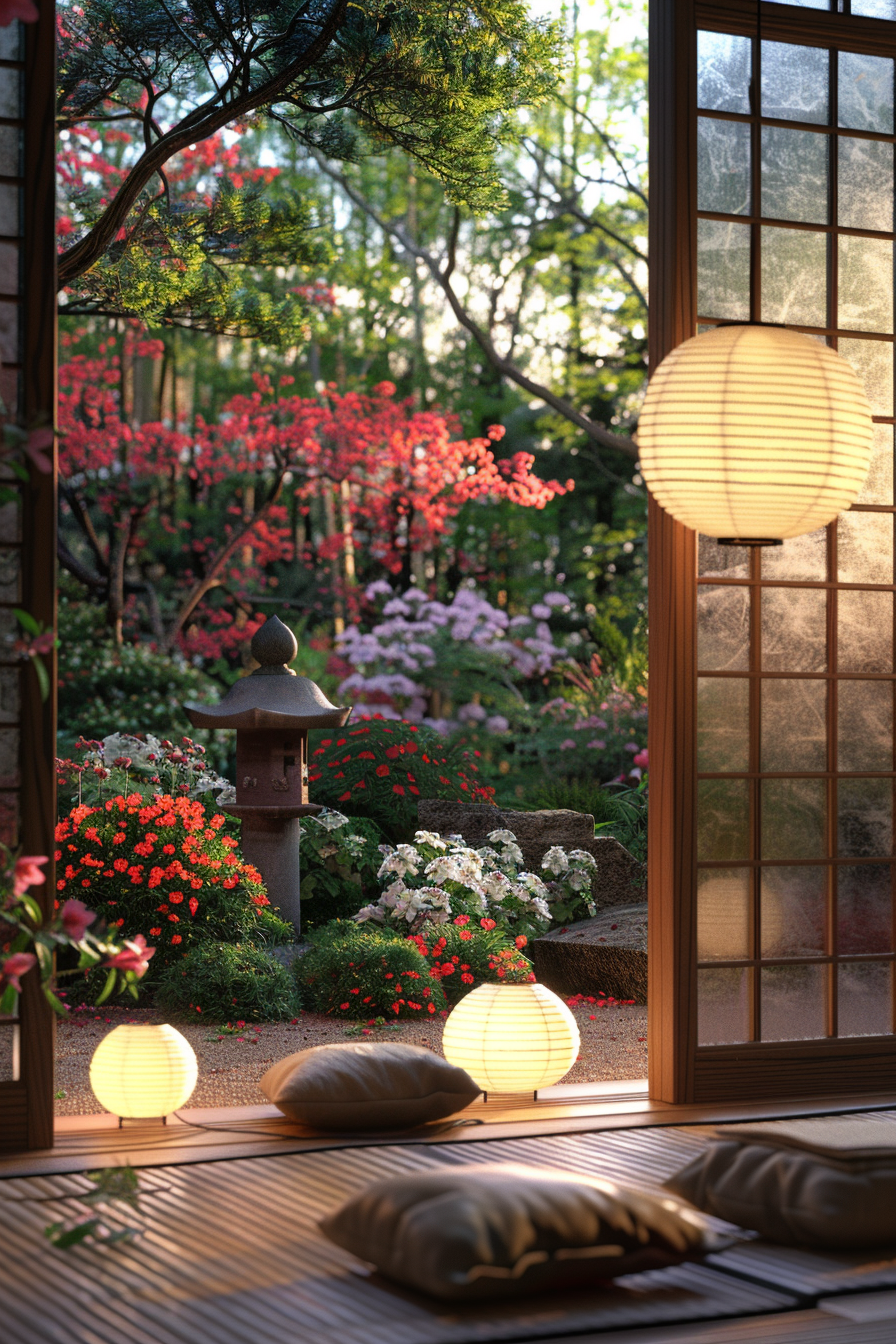
13. Create a Connection with Nature
Ensure a seamless transition between your indoor nook and the outdoor garden. Large sliding doors or windows can help blur the boundaries, making your reading space feel like an extension of the garden.
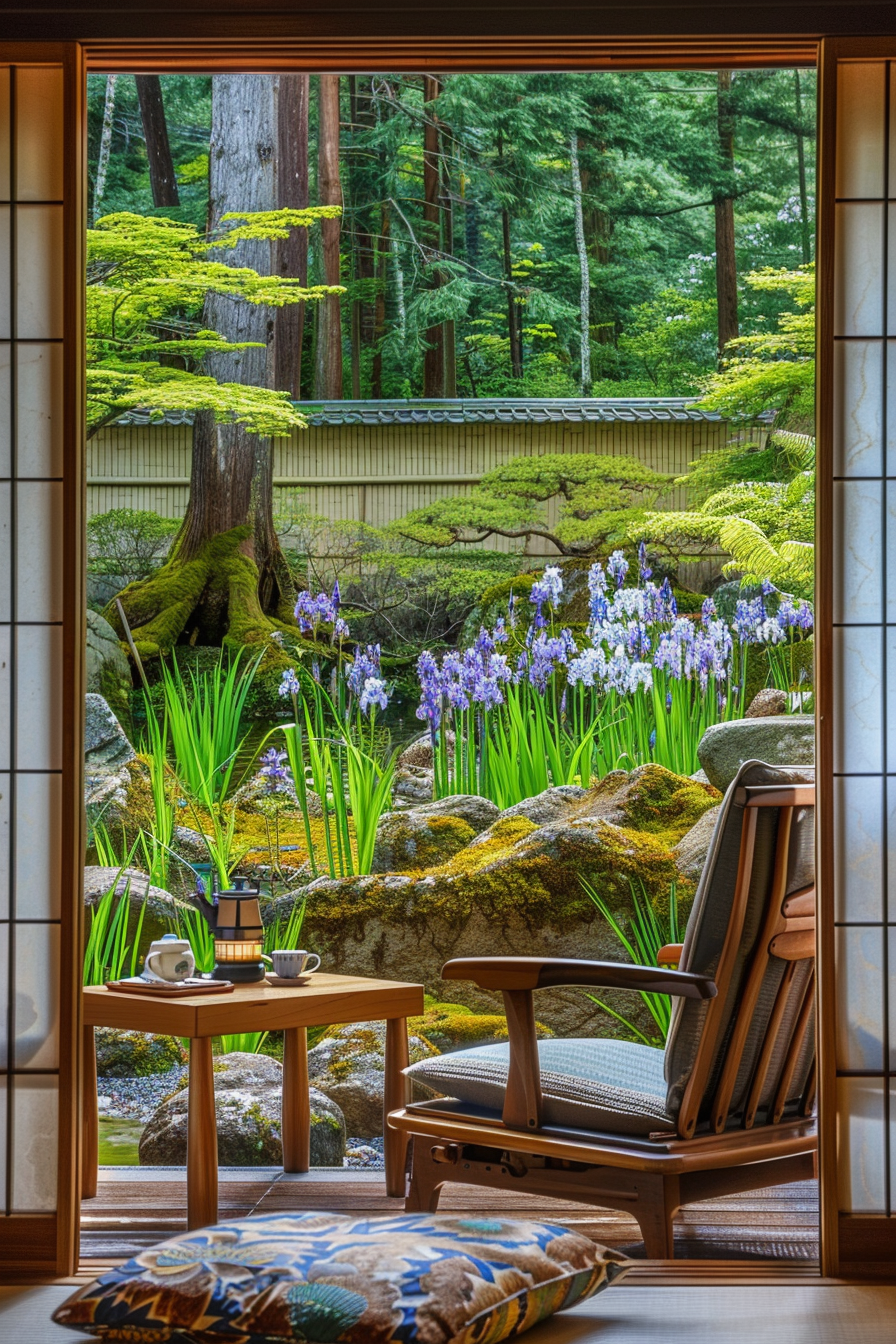
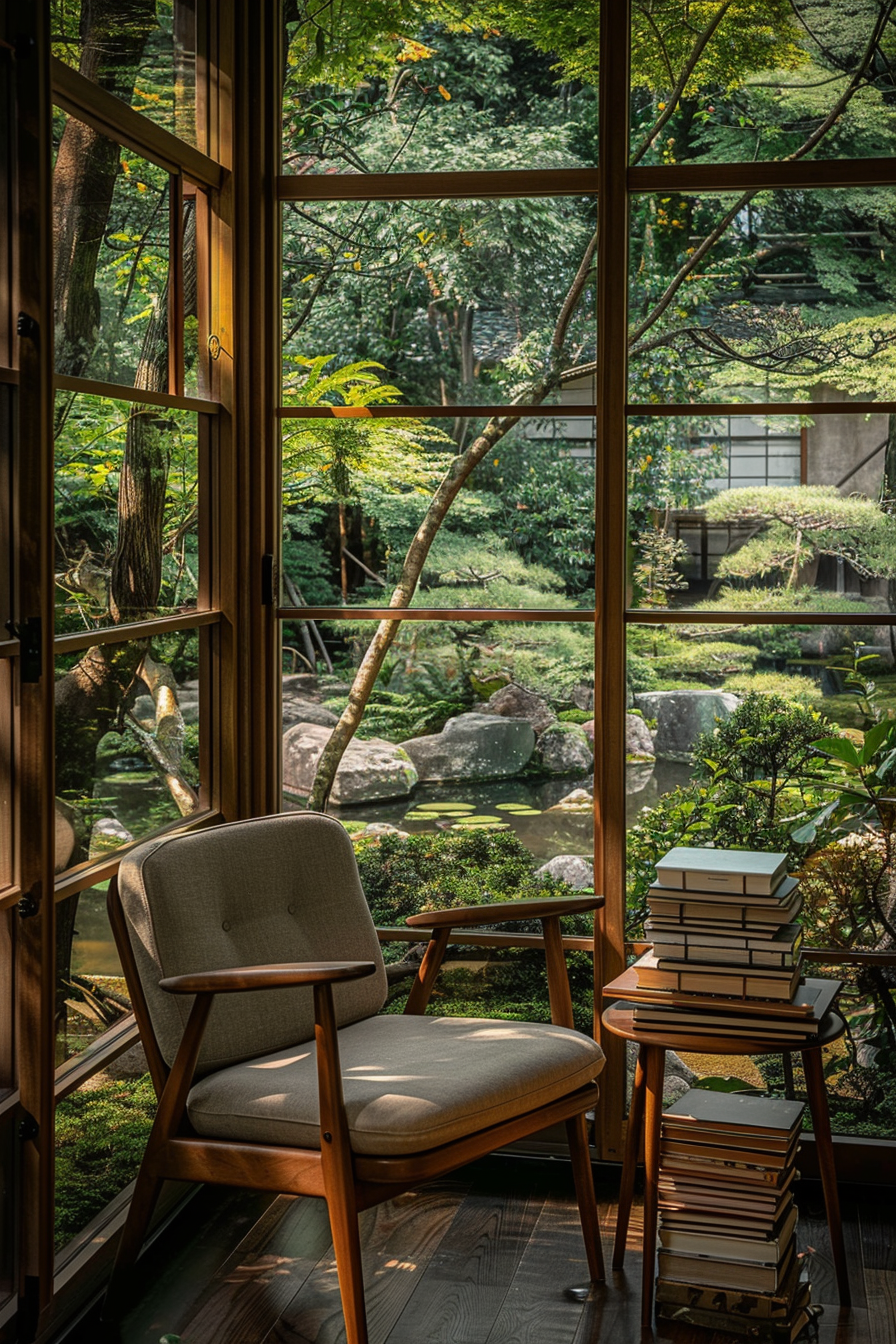
14. Focus on a Central Garden Element
Position your reading nook to have a focal view of a central element in your garden, such as a cherry blossom tree or a stone lantern. This can provide a soothing visual anchor while you read.
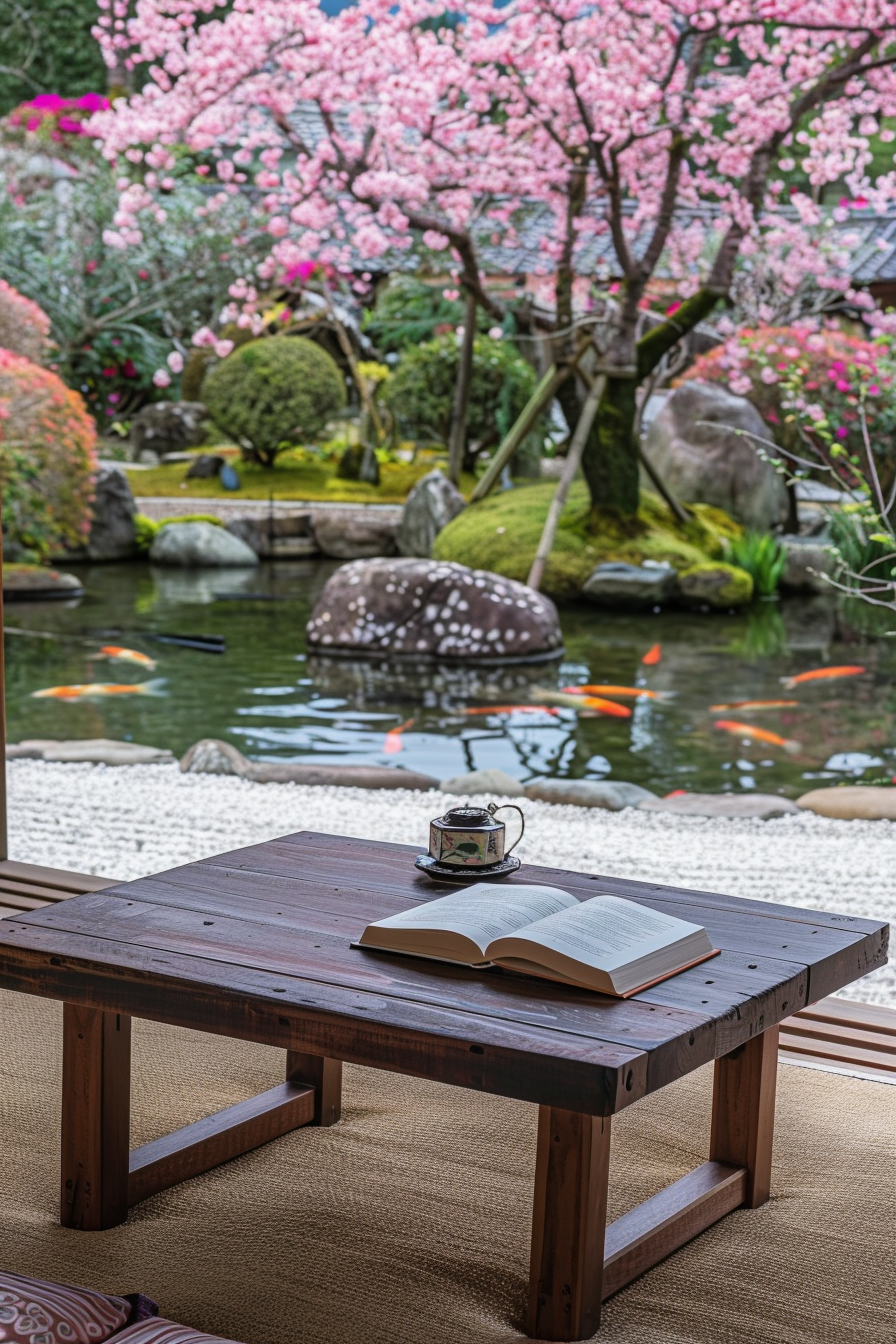
15. Include Zen-Inspired Decor
Incorporate Zen-inspired decor elements, such as stone arrangements, sand gardens, or bamboo accents, to enhance the tranquility and simplicity of your reading nook.
